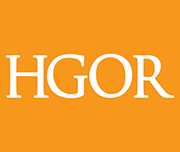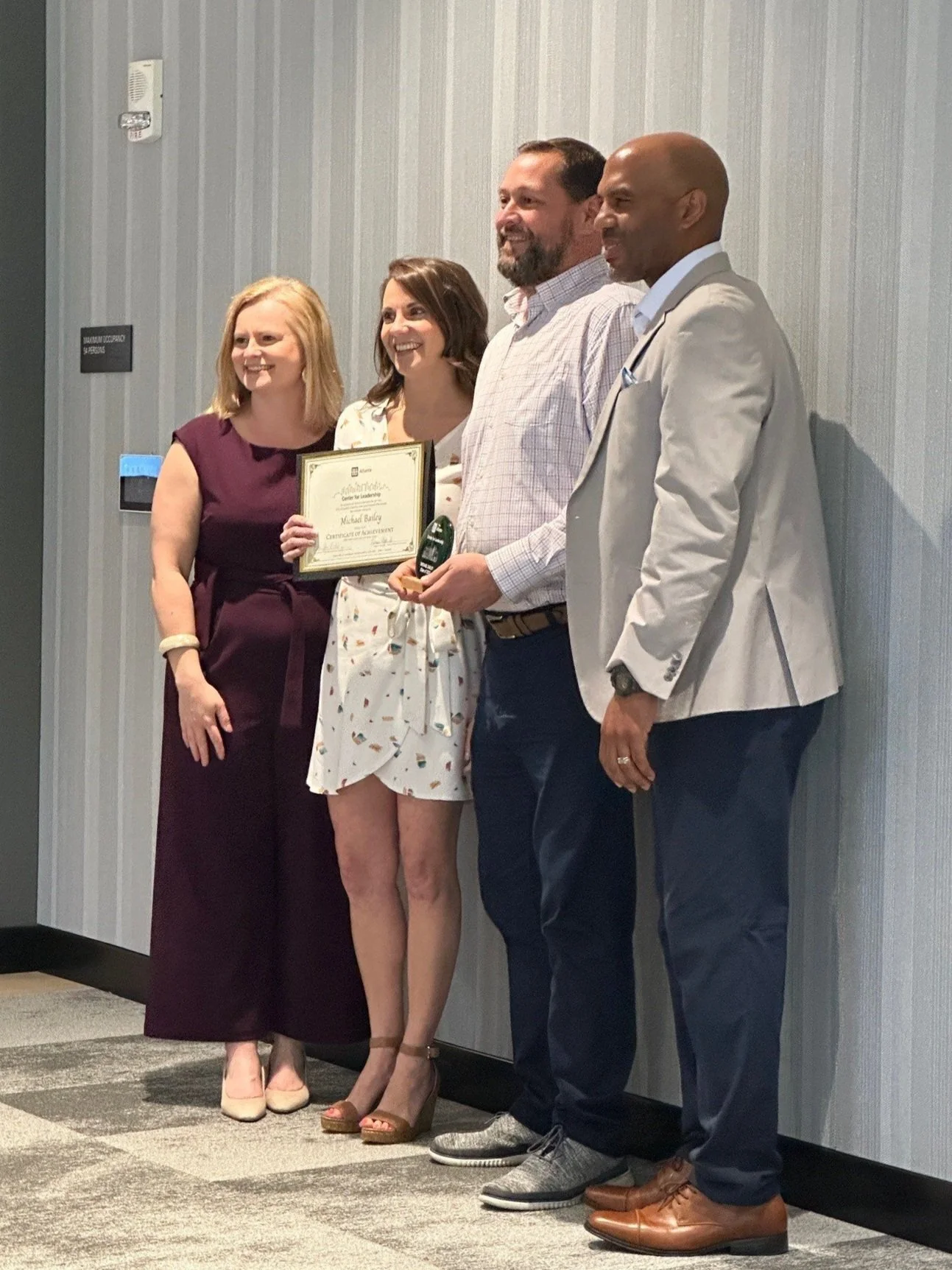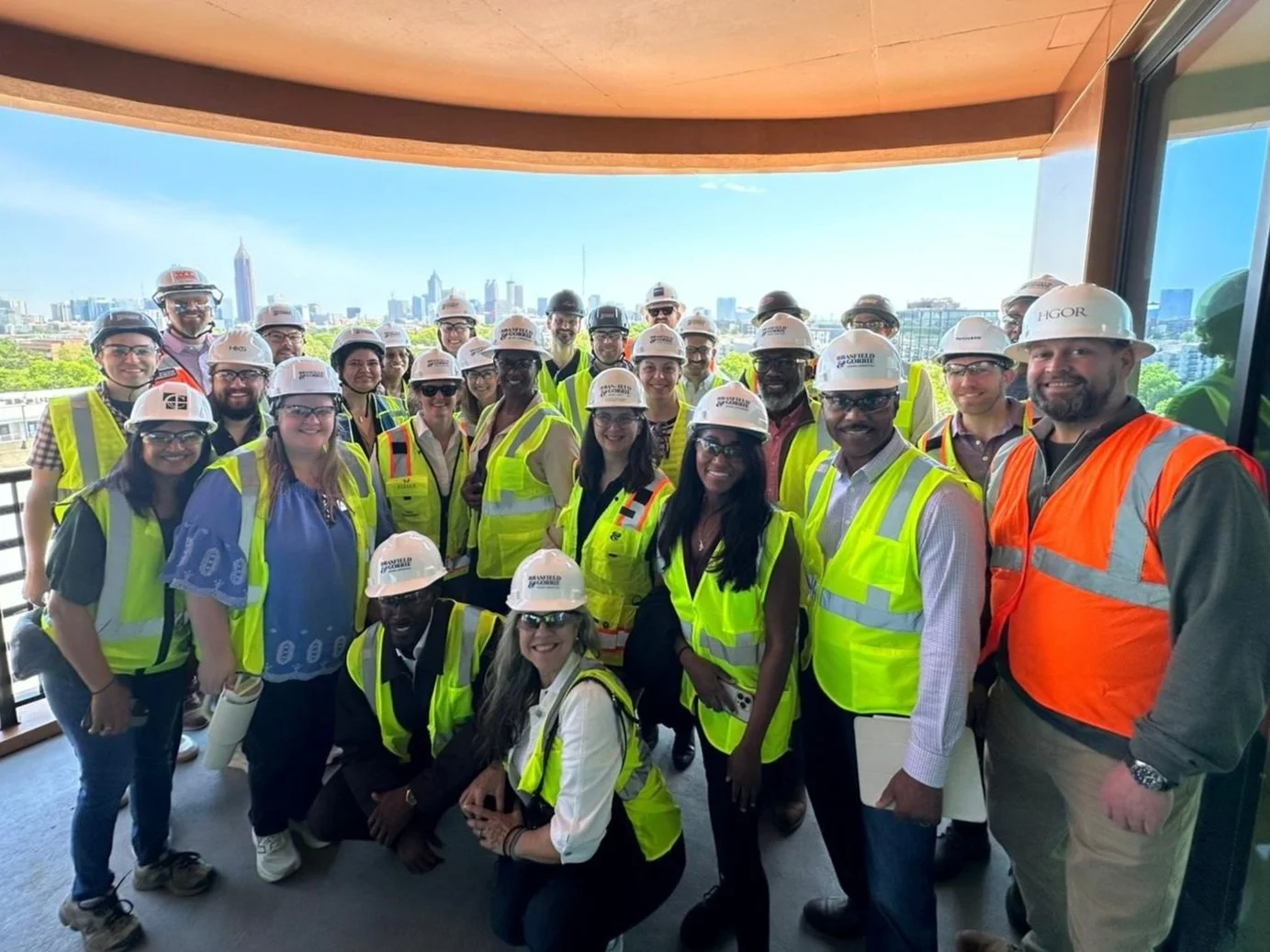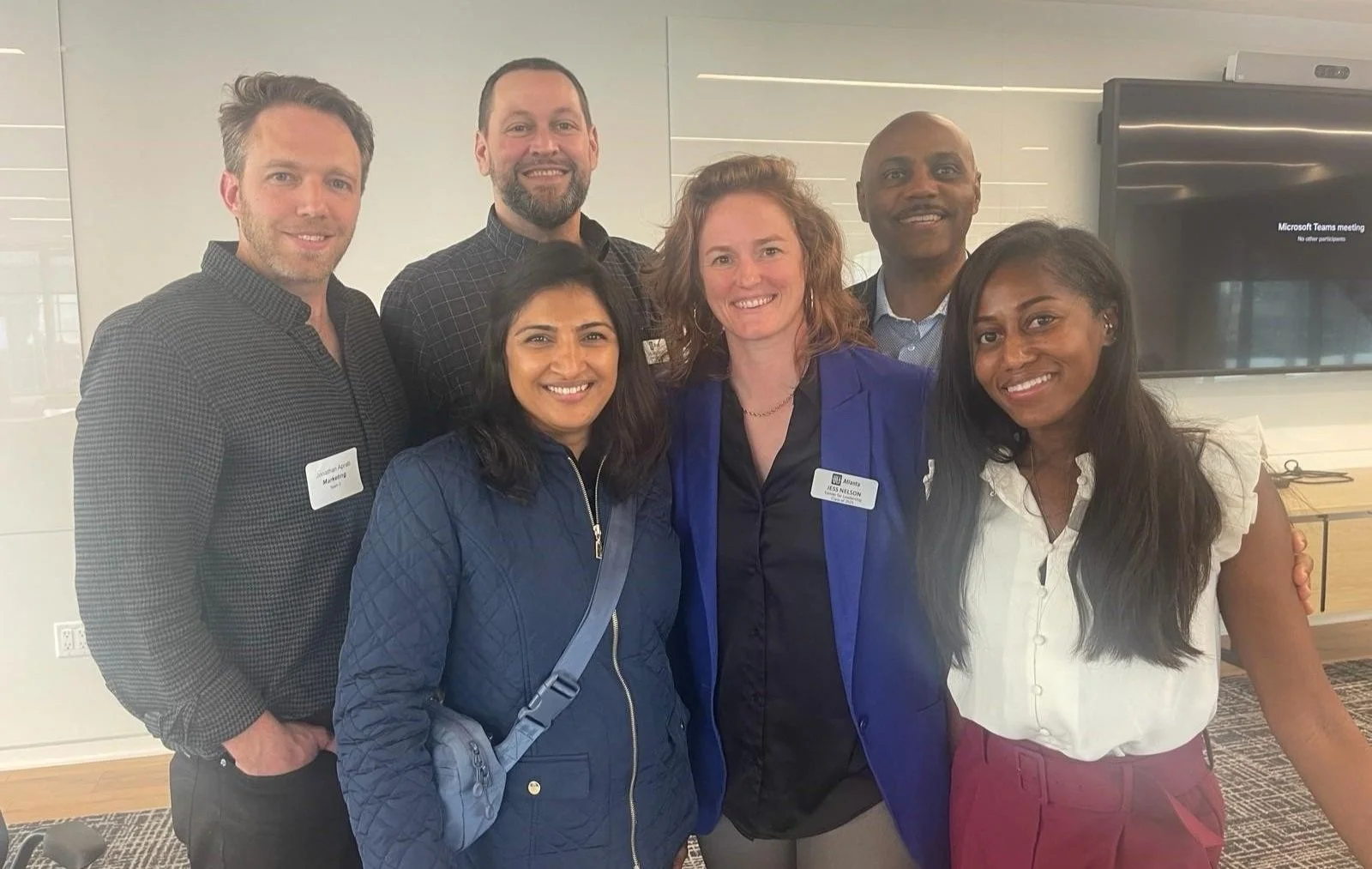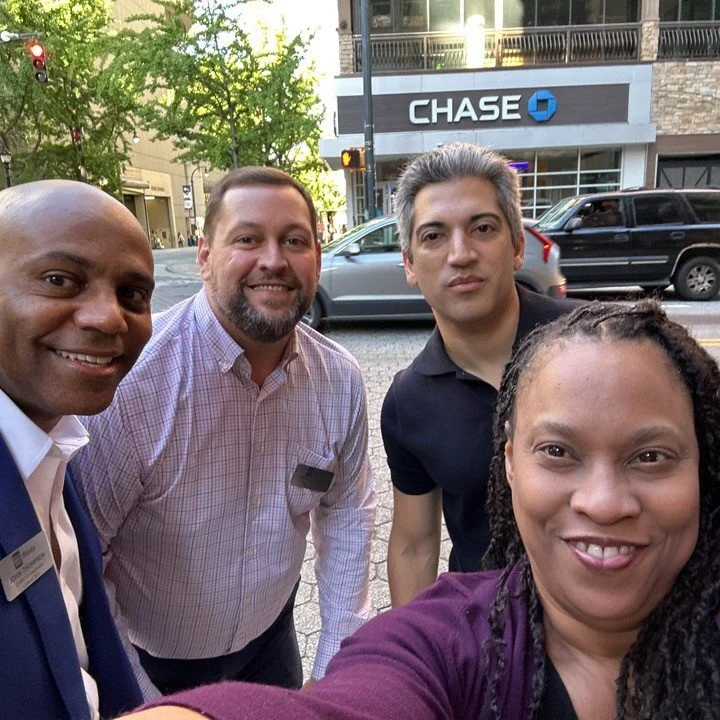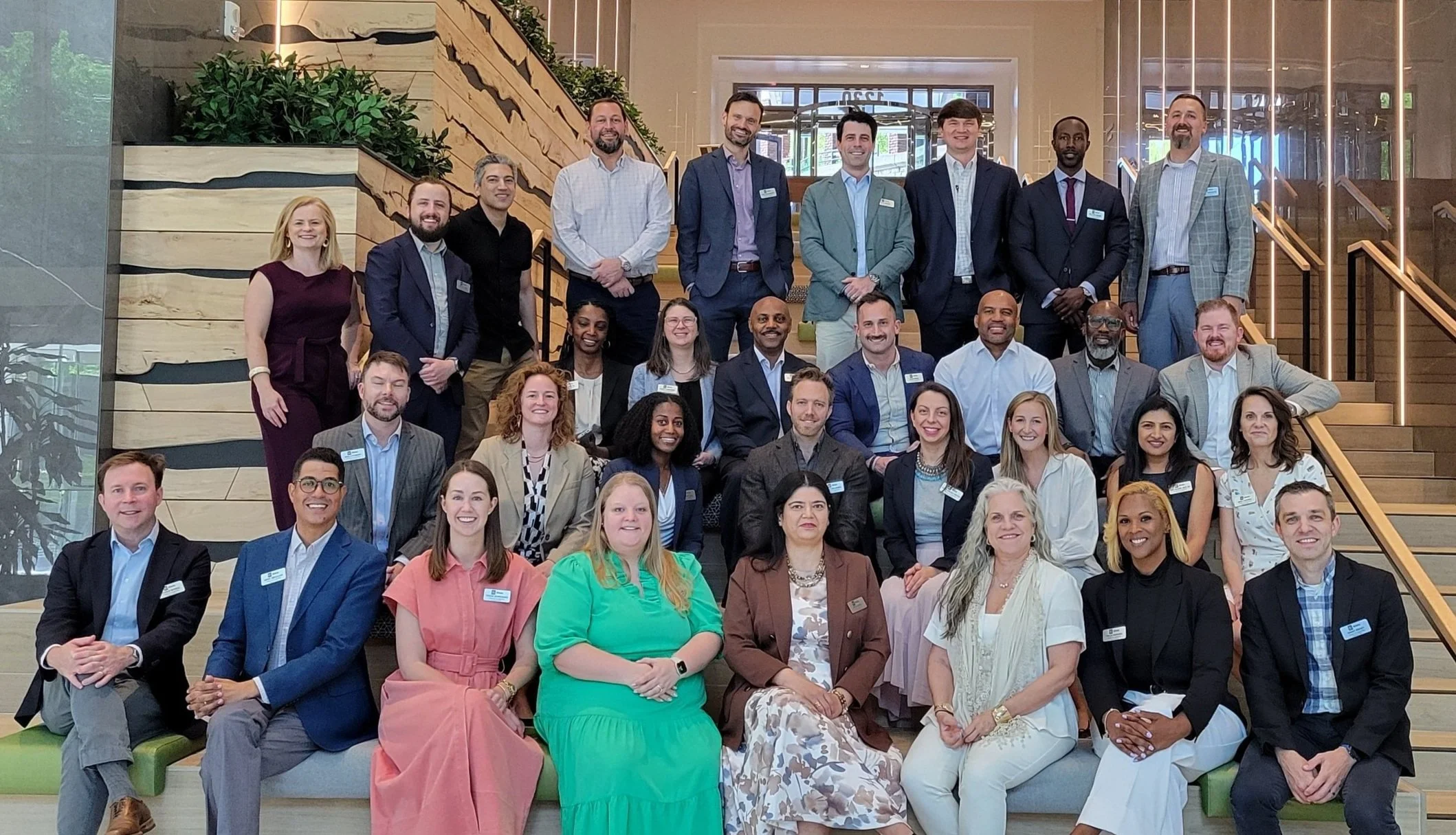Beyond Design: A Landscape Architect’s Perspective on ULI Atlanta’s Center for Leadership
By Michael Bailey, Associate at HGOR
On May 22nd, the Urban Land Institute celebrated the graduation of its 2025 Center for Leadership class—a milestone that marked the end of a year-long journey for participants, myself included. When I first joined the program, I didn’t quite know what to expect. I knew that it would be an opportunity to stretch my leadership muscles in new directions, but what I walked away with was something far more impactful than I anticipated.
Speaking the Language of Development
The Center for Leadership program illuminated the many layers of development I hadn’t fully grasped. As a landscape architect, I’ve always been closely tied to the design side of development and, to a degree, the client. Understanding the financial and policy pressures developers face behind the scenes has forever changed the way I interpret a project, particularly, understanding how funding is sourced, what financial metrics must be met, and how those realities influence the expectations communicated to designers. It’s not just about meeting a design vision; it’s about navigating a system.
This awareness is already enhancing how I lead project teams. I can better mentor emerging professionals and more effectively translate a developer’s “why” into design decisions that make sense—not just aesthetically, but strategically.
Leadership in Action: My mTAP Experience
One of the most transformative aspects of the program was leading our team’s mTAP (mini-Technical Assistance Panel) project for Morris Brown College. The challenge: create a strategic land use plan to accommodate the college’s goal of doubling enrollment within its existing footprint. The complexity was real, riddled with physical constraints, financial limitations, and the need for community engagement.
The experience was a crash course in real-time leadership—coordinating team members, gathering data, and ultimately shaping a plan that was both visionary and pragmatic. More than that, the process reaffirmed a personal trait that had come up in our leadership personality assessments: tenacity. I value structure and believe in finishing what we start, and thus, I enjoyed creating that for our project outside the bounds of my typical team structure.
Ultimately, our recommendations were well-received and not only validated our approach but reinforced that leadership comes from a willingness to step up, ability to efficiently delegate, and appreciation for diverse perspectives and cross-collaboration.
The Value of Diverse Voices
One of the greatest strengths of the Center for Leadership program is the diversity of its cohort. Developers, public officials, designers, and nonprofit leaders each brought a different lens to the table. Sitting beside civic leaders and policymakers reshaped how I think about influence. Too often, design happens in a vacuum, missing the nuanced realities that shape city and regional policy. The program was a powerful reminder that successful projects—and equitable cities—depend on shared understanding and collaboration across sectors.
It’s also why community service and civic engagement are so central to what we do. You can't design for people if you’re not connected to their lived experiences, and you can’t push for impactful change if you don’t understand how regulations and politics shape what’s possible. This experience didn’t just validate those beliefs—it deepened them.
Advice for Future Participants
If you're stepping into the next Center for Leadership class, my biggest piece of advice is this: absorb everything. It’s rare to be surrounded by such a mix of valued perspectives, and even rarer to have the space to learn from them. Ask questions, talk to the experts, and engage fully.
The program isn’t just about gaining knowledge; it’s about becoming the kind of leader who doesn’t keep that knowledge to themselves—and that’s where I find the most meaning. I don’t just want to get better at what I do. I want the people I work with—inside and outside HGOR—to benefit from what I’ve learned. That’s what leadership looks like to me now: not a title, not a checklist, but a commitment to making our collective work better, deeper, and more connected to the communities we serve.
Urban Land Institute Atlanta, Center for Leadership Class of 2025
